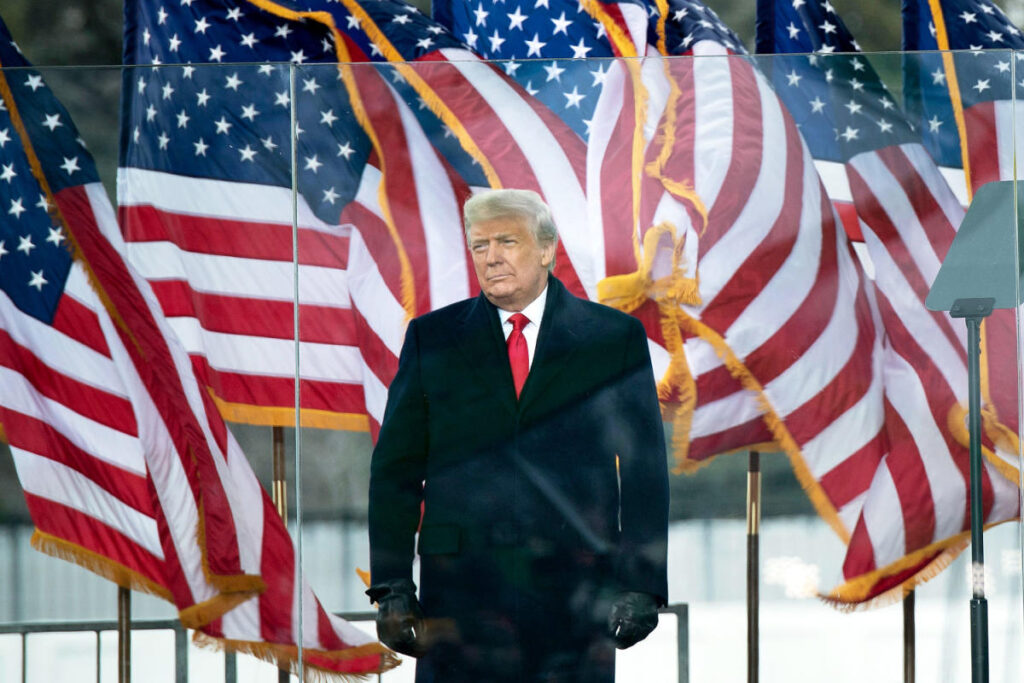The Justice Department is intensifying its efforts to apprehend those responsible for the most egregious assaults during the January 6, 2021, Capitol riot, particularly focusing on individuals who assaulted law enforcement officers and remain unarrested. With only 72 days before President-elect Donald Trump is set to take office, there is significant concern that he may end the ongoing investigations into the Capitol insurrection. Trump has indicated he would consider pardoning some individuals involved in the riot whom he refers to as “warriors” and “political prisoners,” a move that has raised alarm among law enforcement and prosecutors. As part of their strategy, federal prosecutors have been advised to prioritize cases involving felony assaults, aiming to push through existing charges without delays, as a societal interest in swift justice is cited.
With numerous suspects identified as wanted for felonies related to January 6, online sleuths known as “sedition hunters” are playing a critical role in the investigation. They have presented evidence regarding at least 75 individuals currently sought by the FBI due to their alleged violent actions during the Capitol breach. The urgency of these prosecutions is underscored by the belief that if arrests are not expedited, many offenders may evade justice due to the looming transition of power. As one sleuth noted, with time running short, the pressure to secure convictions is intensifying. Existing cases are expected to continue winding through the legal system, with hearings and trials scheduled in the immediate future to address the backlog of defendants.
To date, law enforcement has arrested over 1,560 individuals connected to the January 6 events, with more than 1,100 convictions, and over 600 defendants serving sentences ranging from brief jail time to lengthy prison terms. A notable case recently concluded with a rioter receiving an eight-year prison sentence for violent actions, including assaulting officers amidst the chaos. This progression has seen both a strong commitment to pursuing justice and growing frustrations within the prosecutorial teams. The commitment to uphold the law has been a driving motivation, yet the emotional toll of dealing with the aftermath of the riots is evident, particularly concerning the treatment of police officers who were on the front lines.
Former prosecutors acknowledge that while they take pride in the judicial process, the potential for presidential pardons casts a long shadow over their efforts. The idea that individuals who assaulted officers may be forgiven by the next president is particularly disheartening. There is a palpable sense of betrayal among those who fought to uphold the rule of law, as the violence inflicted upon officers during the riot challenges their faith in the legal process and the nation’s collective memory of that day. One former assistant U.S. attorney highlighted the depravity of the acts committed against officers and expressed deep concern about the implications of pardoning such individuals.
Prosecutors express their motivation largely stems from the desire to vindicate the victims of those assaults, predominantly the law enforcement officers who faced extreme violence. The emotional weight of these cases is further amplified by testimonies from officers like former Capitol Police Sergeant Aquilino Gonell, who suffered physical and psychological trauma as a result of the riot. Gonell’s ongoing attendance at sentencing hearings exemplifies the struggle for closure and acknowledgment of the violent reality he and others experienced. He emphasizes that the historical impact of January 6 cannot be undone by any pardons and calls into question the moral compass of the nation in recognizing the severity of that day.
As the Justice Department works against the clock to conclude prosecutions before the new administration begins, the commitment to accountability remains central. The emotional toll of this endeavor continues to weigh heavily on all involved, exacerbated by potential changes to the political landscape. There is a collective anxiety among law enforcement officials, legal professionals, and victims about the future of justice as they strive to ensure that the events of January 6 are not forgotten and that the sacrifices of those who defended democracy are honored. As expressed by Gonell, the challenges may reshape the narratives around that day, distorting public perception and raising questions of empathy and societal responsibility towards the injured and wronged. With mounting pressures from upcoming political changes, the Justice Department’s approach will significantly impact how the events surrounding the Capitol riot are viewed and remembered in American history.

